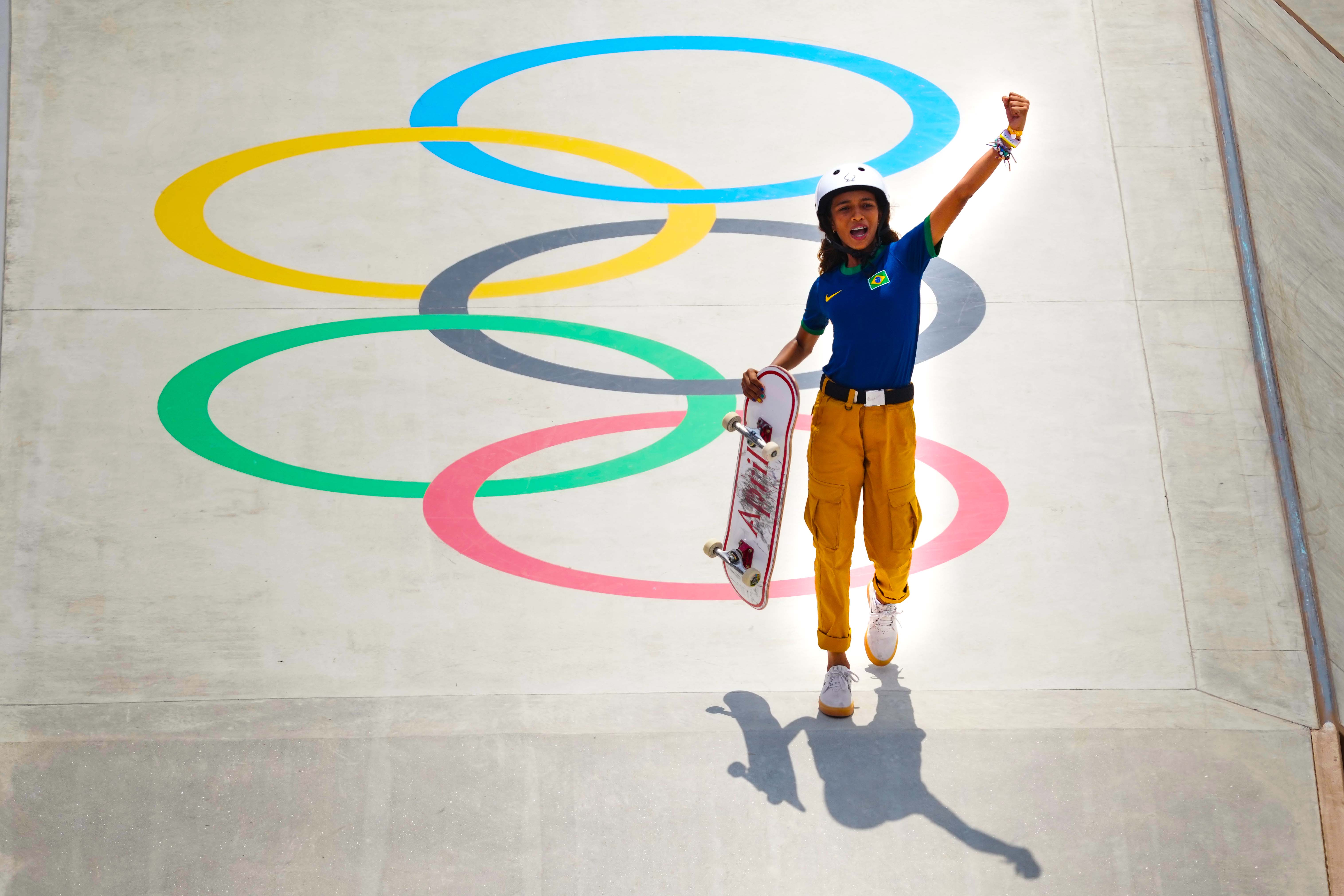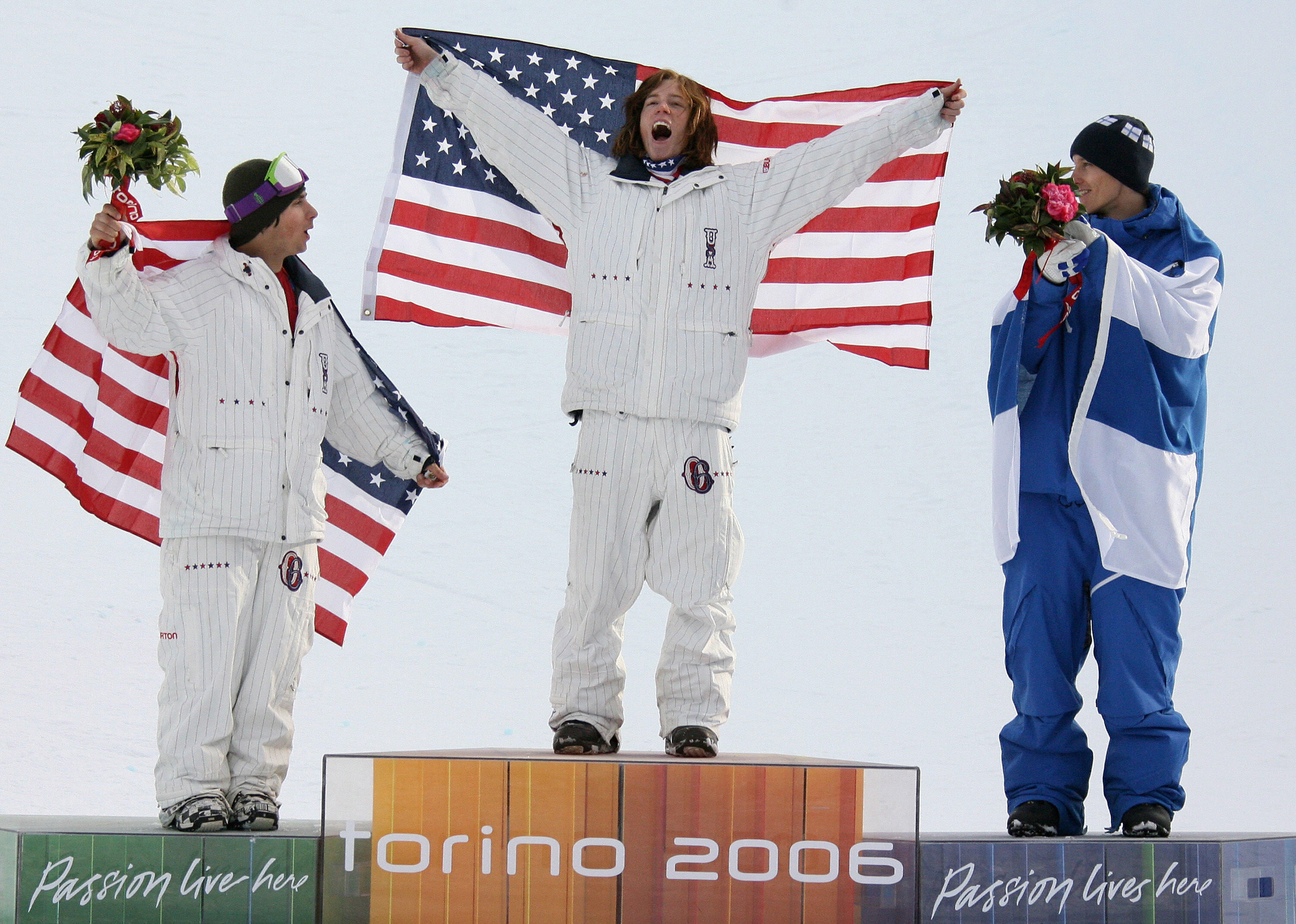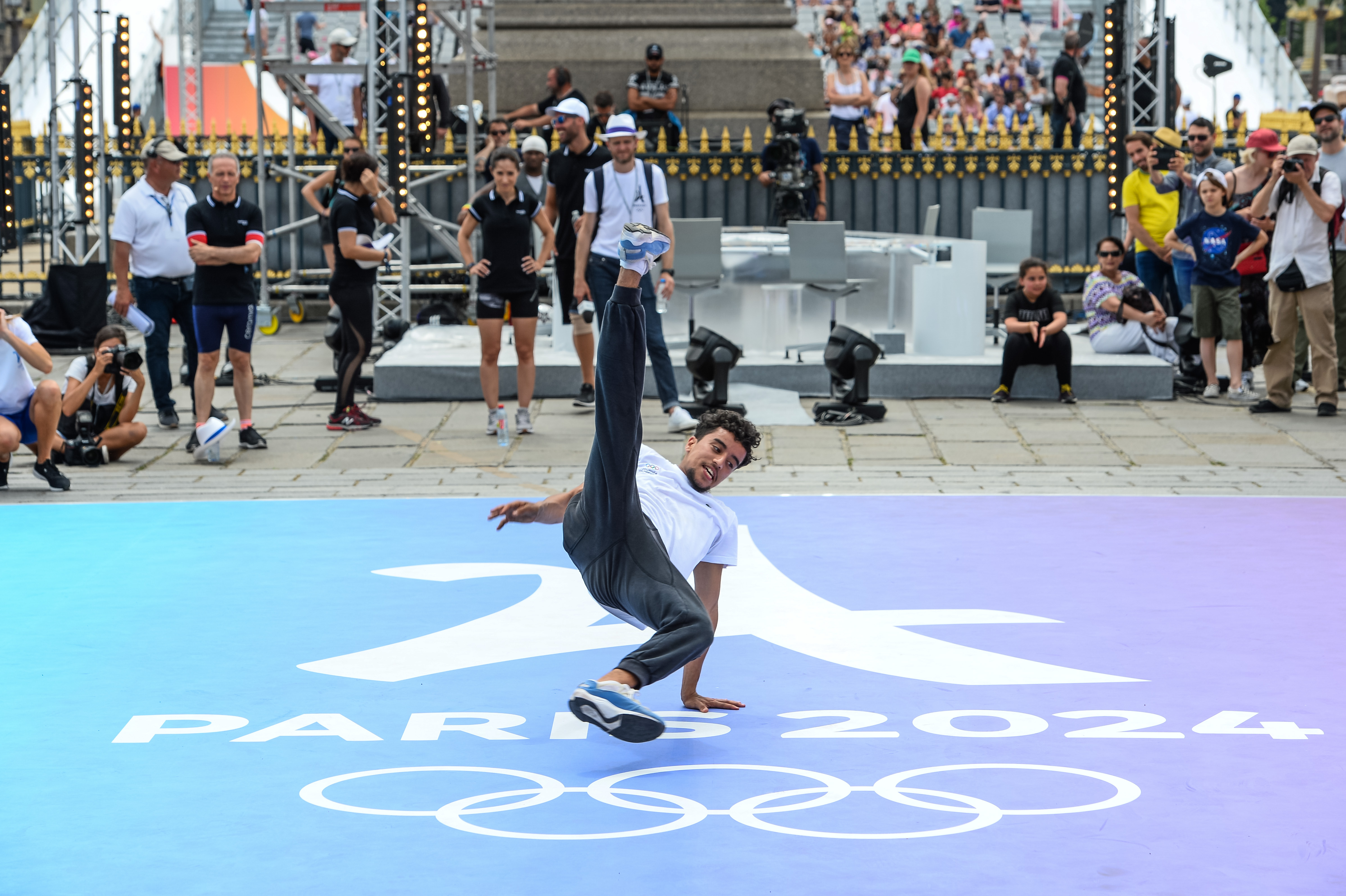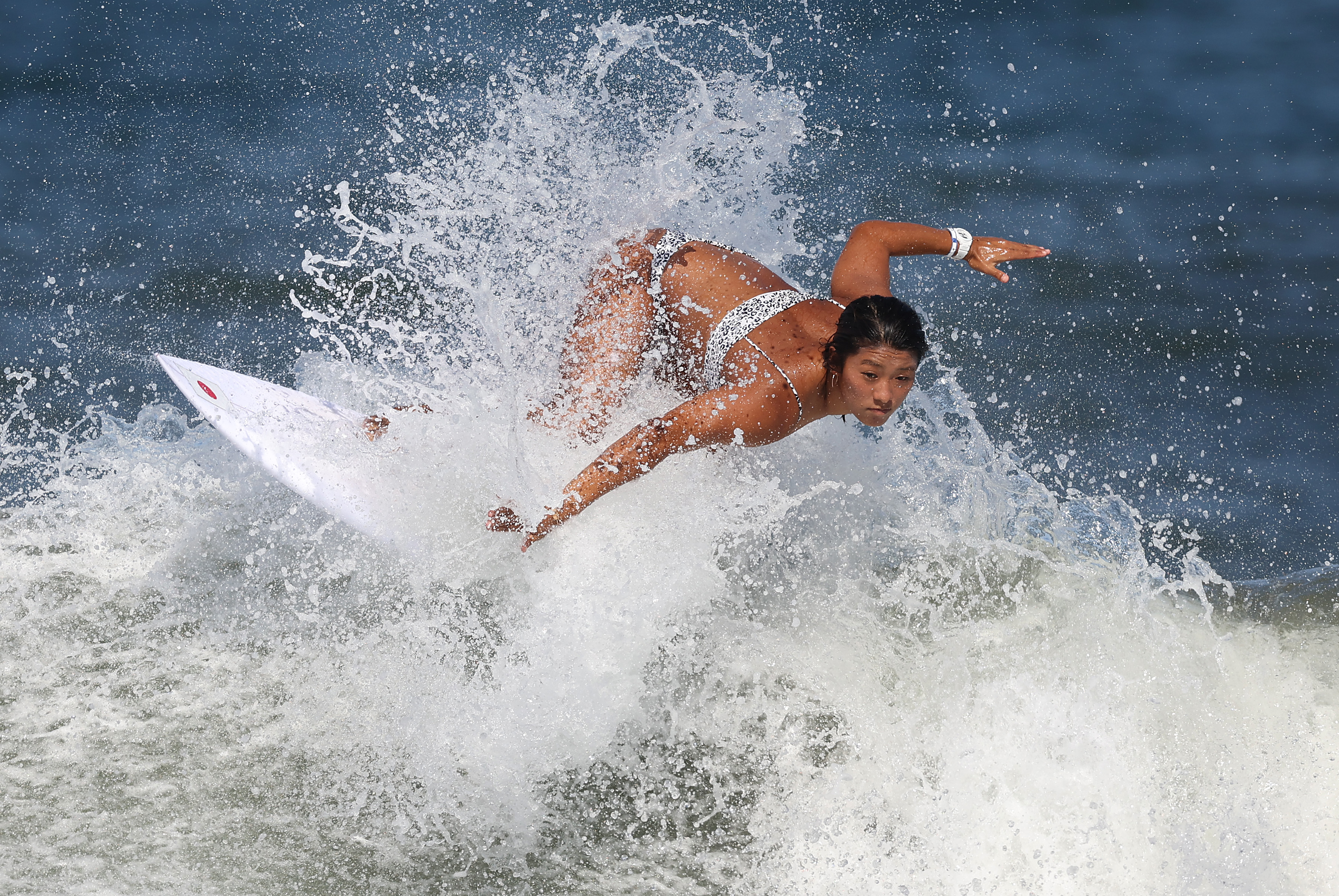How the Olympics’ Thirst for Youth Subculture Steamrolls the Sports We Love

Several years back, I was at a breaking jam at the Brooklyn Lyceum watching the qualification rounds of the Battle of Chicken and Beer. During one of the sets, as one b-boy flipped upside down, a huge bag of weed fell out of his pocket. The entire place erupted in laughter and a couple people at the front scrambled to grab the bag (ostensibly to move it out of his way as when keys or loose change fall from dancers’ pockets). I have no idea if that b-boy ever got his weed back.
Breaking will make its Olympic debut in Paris 2024. And we can be certain scenes like that won’t come along with it, and not just because marijuana is a banned substance. Breaking’s freewheeling atmosphere—what one b-boy described as “barely controlled mayhem”—is not something that can be imported to the Olympic format as easily as headspins. While few may bemoan a dearth of loose baggies at the Games, there is serious angst about the Olympics’ embrace of newer sports in turn smothering the very subcultures that first nurtured them into being, particularly when it employs governing bodies with little connection to those communities to oversee them.
In the past two decades, the Olympics started adopting newer sports in a bid to pursue younger audiences: snowboarding was added in Nagano 1998; BMX racing in Beijing 2008; and skateboarding, sports climbing, and surfing are all making their debut appearances in the current Tokyo Games. But what often comes with the elevation, celebration, and grand recognition of the global stage, in the minds of some loyal practitioners, is degradation. Native Hawaiians have complained that the Olympics are “whitewashing” surfing of its Polynesian roots, further cleaving it from its origins as a spiritual art form and cementing surfing’s colonizer-capitalist takeover. Top climbers called the Olympic formats, particularly speed climbing, “a big shame” that is out of step with climbing philosophy.
Behind all of the decisions for which sports are accepted into the Olympics is the shadowy and powerful International Olympic Committee (IOC), based in Lausanne, Switzerland, and the “supreme” authority of 112 members from member nations who decide on all rules, regulations, and major decisions for the Games. In recent years, allegations of ossification, corruption, and detachment have dogged the IOC, and youth sport communities are contending with those kinds of frustrations themselves. Currently, the Summer Olympics features 28 sports with 38 disciplines, and the Winter Olympics has seven sports with 15 disciplines, including nine that have been around since the Games inception in 1896, such as fencing and weightlifting. An international federation that has already been recognized by the IOC must apply for the new activity to be admitted to the Games, either as a new sport or as a discipline of a preexisting Olympic sport.
“The Olympics desperately need a ‘cool’ factor for their Summer Games,” Tony Hawk told the New York Times in 2007 of the IOC’s bid to bring skateboarding into the fold. “They finally figured out that snowboarding is more popular than curling during the winter.”
Cheap shot at curling aside, Hawk’s observation was not wrong; the Olympics’ popularity among young fans was flagging—the 2016 Games saw a 30 percent drop among viewers ages 18 to 34—and they needed to do something to shore up future generations of Olympic fans. The IOC’s strategic roadmap for the future, Olympic Agenda 2020, emphasized introducing sports that would appeal to younger viewers. As 75 percent of the Olympics’ revenue comes from TV contracts, bringing in highly televisual sports that increases viewership has been essential to the institution’s survival, albeit one with diminishing returns as television viewership falls in face of streaming services. Even so, snowboarding has been enormously successful for the IOC, surpassing all other on-snow disciplines in peak audiences, undoubtedly due to the exciting and complex acrobatics that the snowboarders perform, and athletes like Shaun White and Chloe Kim, whose charisma and success haven enabled them to crossover into the mainstream.
“There’s a desire to reach out to the younger people and try to get people invested in, hooked on, and indoctrinated by the Olympic Games at a young age,” Professor Jules Boykoff, author of Power Games: A Political History of the Olympics, told me over the phone. The IOC’s interest in these so-called “youth/action sports”—many practitioners of these activities bristle at having them described as “sports”—raises certain questions: Who or what gets to speak for a sport and a community? And what does it mean to bring these disciplines and their attendant cultures to the Olympic stage? Right now, there are near existential battles over who exerts control over the youth/action sports once they are adopted—or appropriated, as some might argue—by the Olympics.

Fourteen years after Tony Hawk expressed optimism about the “chances” for skateboarding entrance into the Olympics, it debuted in this year’s Tokyo Games. But whatever enthusiasm the skateboarding community had for the Olympics, it has soured in some corners.
“It was either the late 90s, or the very early 2000s, that we suddenly kind of got wind of this group of roller skaters in Nebraska that had proclaimed themselves the international governing body of skateboarding,” said Dave Carnie, who was then the editor of the now-defunct skateboarding magazine Big Brother. “There was no one in their organization who had ever even ridden a skateboard.”
It’s hard to know precisely what motivated roller sports to look at skateboarding with an interested eye, but the possibility of Olympic inclusion certainly played a big part. The IOC didn’t appear interested in their “homegrown” disciplines and if they ever hoped to administer a full-fledged Olympic sport, they’d have to look elsewhere. Once in charge of an Olympic discipline, you get access to funding, especially if the IOC decides to make your sport a permanent part of the program.
“Wouldn’t it be best, if it does go to the Olympics, that it’s run by skateboarders?”
In 2002, Carnie interviewed the spokeswoman of USA Roller Sports, Dinah Robins, and she told him: “We are the national governing body of all roller sports under the United States Olympic Committee. And technically skateboarding is a roller sport.” This rankled many in the skateboarding community.
Carnie said that word of this attempted incursion by the roller sports spurred people involved in skateboarding to consider organizing. It wouldn’t be the first time they had dealt with exploitive forces. ESPN, the creator of the X-Games, financially exploited athletes while raking in millions in revenue. Some competitors only earned enough to cover their hotel bill for their stay during the X Games—a hard lesson for the skateboarding community.
In 2002, Gary Ream, president of Camp Woodward, and Mike Jacki, former president of the United States Gymnastics Federation, worked in conjunction with an association of major skate brands to create the International Skateboarding Federation. Several notable skateboarding figures, like Tony Hawk and Chris Miller, were involved. But organizing skateboarders—many of whom got into skating for its lack of structure—proved difficult. “We were criticized by a lot of people because people were like, ‘Fuck the Olympics, fuck Olympic skateboarding,’” said Carnie, arguing that avoidance wouldn’t protect skateboarding. “That’s why we’re organizing, because these roller sports people want to take this to the Olympics.”
While many in the skateboarding community may have wanted to shun the mainstream recognition of the Games, once the IOC set its sights on skateboarding, the die was cast. “We also realized, despite the fact that we don’t want skateboarding to go into the Olympics, the genie’s out of the bottle,” said Carnie. “Wouldn’t it be best, if it does go to the Olympics, that it’s run by skateboarders?”
In the end, Carnie’s fears about oversight for skateboarding somewhat materialized: In 2017, the International Skateboarding Federation and the International Roller Sports Federation (FIRS) merged to form World Skate. (Ream leads a commission within World Skate that oversees skateboarding.)
It’s not clear earlier organizing could have prevented an intrusion. Even when a sport has a strong international governing body in place, the IOC may ignore it. Take snowboarding: Despite the existence of the International Snowboarding Federation, the IOC went to the International Ski Federation (FIS) to run it, which decided to claim snowboarding for itself in 1994 and began to organize rival events. (Terje Haakosen, considered the best snowboarder of his time, boycotted snowboarding’s inaugural run at the Olympics in 1998.)
The IOC’s power of the purse—dictating who gets large sums of funding and international recognition—can override a sport’s preexisting governing bodies. The International Snowboarding Federation ended up going bankrupt and disbanding, while FIS continues to control Olympic snowboarding and receive funding from the IOC, which it then distributes to international federations. These are the kinds of takeovers that have many sport subcultures on edge.

Not every new Olympic sport gets mired in a takeover, and some welcome the international recognition: In the case of breaking, which is set to make its Olympic debut in 2024, there was no global breaking organization that would even come close to meeting IOC criteria for an international federation, so it was the ballroom dancers who first laid claim to the discipline. In 2016, the World DanceSport Federation (WDSF) nominated breaking for the 2018 Youth Olympic Games despite having virtually no connection to the dance or the community, but the IOC went ahead and approved it anyway.
“Once the IOC decided to define breaking as a ‘dance sport,’ I said to the breakers, ‘The train has left the station,’” Steven Graham, who helped found the Urban Dance and Educational Foundation (UDEF), told me for a 2018 story. Nevertheless, several prominent b-boys, including Storm and Renegade, and b-girls have signed on and are working with WDSF to bring breaking to the Olympics, and are developing an IOC-acceptable judging system for breaking.
Still, the story of Olympics breaking is yet to be written and there are power struggles unfolding. Originally, in America, USA Dance—the U.S. affiliate of WDSF—was supposed to administer breaking jointly with the newly created USA Breakin’. But that fell through when USA Breakin’ submitted its own application to be the official national governing body of breaking to the United States Olympic & Paralympic Committee in a seeming play to wrest control over the sport. (The head of USA Skateboarding wrote a letter in support of this move.) In explaining the move, USA Breakin’ tweeted that “it is critical for our community to represent and govern ourselves.”
“It gives it a huge stage where people could probably start to pay attention.”
My friend Joe Schloss, a professor of ethnomusicology and author of Foundation: B-boys, B-girls, and Hip Hop Culture in New York, noted in an email that today’s breakers have learned from how their elders were treated in the 1980s. Breaking briefly broke into the mainstream with a proliferation of films, and dancers, many just kids at the time, were often underpaid, and didn’t receive royalties or rights. “I do think that b-boys and b-girls are better positioned this time around to look after their needs and protect themselves,” he wrote.
Benefitting off their own dancing—as well as promoting breaking on a global stage—seems to be an aspiration for many in the community. “I would imagine that these would include the same types of opportunities that arise for other athletes when their sports become popular: endorsements, merchandising, teaching, coaching and so forth,” Schloss wrote to me. That’s the hope, of course, but while money flows to some superstars, many often train on a shoestring budget, sometimes funding themselves, to chase their dreams of Olympic gold.
USA Breakin’ continues to administer its own events. But it will be USA Dance’s events that are the ones that will select dancers for the upcoming world championships. Ken Richards, president of USA Dance, told me that they’re still working with the breaking community, just not through the USA Breakin’ organization.

One of the most rancorous struggles over control of a sport’s Olympic future is parkour, an event in which participants move from Point A to Point B, often around obstacles, creatively and efficiently. What made it an internet sensation in the early aughts were the incredible stunt-like feats, such as flipping off buildings and swinging from bars—the very kind of daredevil action the IOC has been seeking for newer Olympics sports.
In 2017, the International Gymnastics Federation (FIG) announced that it would try to shepherd parkour into the Olympics as the eighth discipline of gymnastics, not as its own sport, and began to hold parkour events. “I’m sure that the FIG is the international federation most qualified to further develop parkour,” Andre Gueisbuhler, the secretary general of the International Gymnastics Federation (FIG), said in an interview in 2017. These moves drew the ire of the global parkour community.
“F.I.G.’s encroachment and misappropriation of our sport continues,” wrote Parkour Earth, which was created in response to FIG’s forays into the discipline, in a December letter to the IOC. CEO Damien Puddle told the New York Times, “Parkour is a distinct activity. The whole thing is seemingly a farce.”
Parkour Earth and the International Parkour Federation, which was established in 2014, both called on the IOC to reject FIG’s application to have parkour accepted into the 2024 Games as a discipline of gymnastics. Neither one has enough members to be admitted to the Global Association of International Sports Federations, which is generally considered a prerequisite for an international federation to be recognized by the IOC. While FIG’s Olympics application for parkour was unsuccessful, it continues to host parkour events. (VICE reached out to FIG for comment but it has not responded.)
Like the complaints in other youth/action sports, what practitioners perceive as a lack of respect for the culture seems to be underpinning much of the bitterness. The IOC has failed to heed the recommendations of its own Olympic Studies Centre, which in 2016, produced a paper that urged the IOC to “work with action-sport specific federations (in contrast to fitting within existing international federations that may not understand and respect the unique cultural value systems and be aware of the important issues within these sport).” The paper, written by Holly Thorpe and Belinda Wheaton, argued that this approach would have the best chance of buy-in, and therefore longer-term sustainability, from the new sports’ core audiences.
Two years after that paper was published, half of the FIG’s parkour commission resigned in protest, writing: “The implementation is trying to go fast with very little or no transparency, no involvement of the international parkour community or national communities.”

At the heart of much of the strife is loads of money. “It’s a trade off,” Boykoff said of whether the Olympics benefits these newer sports. “On the one hand, you’re actually getting some significant amount of money thrown towards your sport. On the other hand, that could create all sorts of friction in the organization that could play out in really ugly ways that could be to the detriment of the sport in the long term.”
The introduction of each of these new sports has brought with it all kinds of factionalization and infighting over who should represent the discipline and the community on the global stage. Not that these communities were perfectly harmonious, but the Olympics seems to have raised the stakes in internal disputes, particularly when it can tip the scales with ample funds.
Hawk, who is working with NBC for the Tokyo Olympics, has expressed ambivalence. “I have a bit of a mixed feeling, obviously, about the Olympics because I feel like we were never looking for their validation,” he told Yahoo! Finance. In other words, skateboarding could do more for the Olympics, than the Olympics could do for skateboarding. Even among those who will be participating in the Games, there is skepticism to the Olympics’ potential distortion of various disciplines. As American Alexis Sablone told Real Sports, “There is this, like, sportification of skateboarding happening, but skateboarding itself is not a sport.”
Though the b-boys I know are also reluctant to call breaking a sport, they’re still cautiously optimistic about what the Olympics can do for their discipline. “What it does is basically shine a light on competitive breaking,” my friend Nemesis, an American b-boy, told me. “It gives it a huge stage where people could probably start to pay attention.” Many still believe that breaking was simply a fad in the 1980s and don’t recognize that this art form remains vital, and has gone global in the decades since it first bubbled up in the mainstream.
Still, everyone involved realizes that there are no guarantees. The IOC may not choose to make breaking a permanent sport; it could also simply drop a sport from the program. (An IOC spokesperson couldn’t comment in time for publication as to whether and how it engages with existing communities from various sports being considered for addition to the Olympics. They did, however, direct VICE to a press conference held last week, during which IOC Sports Director Kit McConnell said that this year’s Games were “designed to be focused on more youth, more urban, more women.”)
That kind of unease is resonant for many of the disciplines newly entering the Olympics. But resisting the machinery behind the Games is an enormous undertaking. As the Japanese have learned—83 percent opposed holding the Olympics in Tokyo this summer—the IOC can even override popular will. They’re certainly more powerful than the sports they seek to administer.
Follow Dvora Meyers on Twitter.